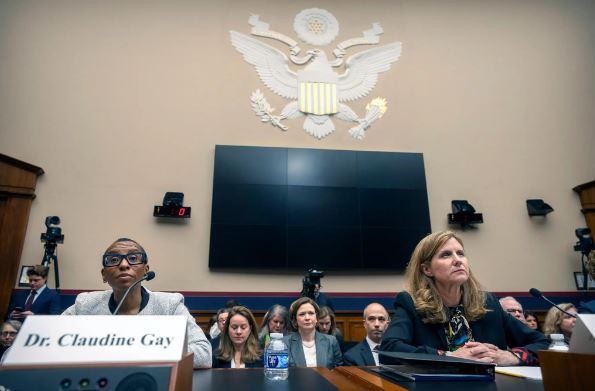Harvard, M.I.T., and the University of Pennsylvania are facing a barrage of challenges, including threats from donors, calls for the resignation of their presidents, and a congressional investigation. The turmoil stems from their perceived inadequate responses to antisemitism on their campuses.
At the University of Pennsylvania, the future of President Elizabeth Magill is under scrutiny following her congressional testimony, where she evaded answering whether she would discipline students advocating for the genocide of Jews.
In response, the House committee launched an investigation into the three institutions, criticizing them for failing to address “rampant antisemitism” after the Hamas attack on Israel and the subsequent Israeli invasion of Gaza on Oct. 7. Representative Virginia Foxx, the Committee on Education and the Workforce chairwoman, emphasized that the inquiry would assess the learning environments, disciplinary procedures, and issued a warning about potential subpoenas.
Senator Kirsten Gillibrand called for the resignation of all three university presidents, stating, “You cannot call for the genocide of Jews, the genocide of any group of people, and not say that that’s harassment.”
Even Doug Emhoff, the husband of Vice President Kamala Harris, expressed his discontent at the National Menorah Lighting in Washington, condemning the university leaders for their lack of moral clarity.
Within the University of Pennsylvania community, pressure has been mounting on President Magill. The Wharton advisory board urged her to step down immediately, stating that “the university requires new leadership with immediate effect.” Additionally, hedge fund manager Ross L. Stevens announced his intention to retract a $100 million donation earmarked for the Stevens Center for Innovation in Finance.
Penn’s board of trustees convened for an emergency meeting but did not vote on removing President Magill. Instead, they pressed her and other leaders to articulate the university’s values more clearly. Calls for Magill’s resignation came not only from external figures but also from within the university community.
At M.I.T., the governing board offered a strong endorsement of President Sally Kornbluth’s leadership, stating that she had done excellent work in addressing antisemitism and other forms of hate. Meanwhile, at Harvard, where President Claudine Gay issued a clarification condemning violence or genocide against any religious or ethnic group, issues persisted.
Rabbi David Wolpe resigned from Harvard’s antisemitism advisory committee, citing deep-rooted problems at the university. While acknowledging Dr. Gay’s kindness and thoughtfulness, Rabbi Wolpe expressed concerns about the prevalence of antisemitism and the challenge of making a meaningful difference.
The controversy has prompted a broader discussion about the handling of antisemitism on university campuses and the responsibility of leaders to address these issues effectively. The congressional investigation will likely delve into the specifics of the universities’ actions, contributing to the ongoing debate over the role of educational institutions in combating discrimination and fostering inclusive environments.

